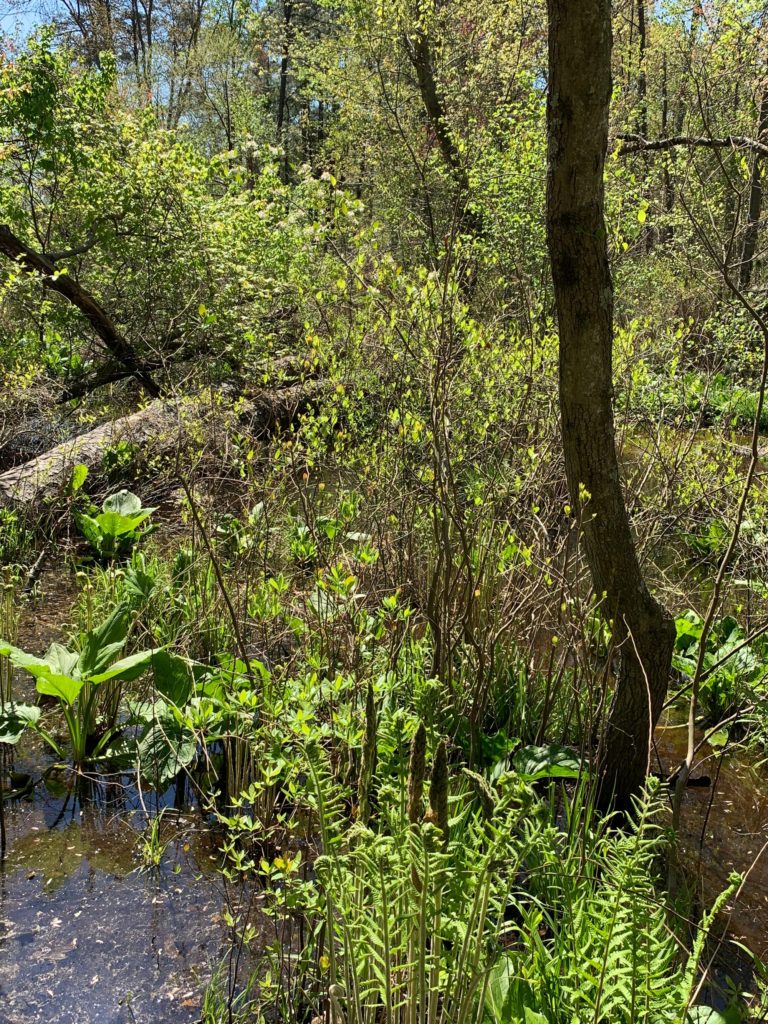Gardening for Health

Earth Day All Year Round
By Maria Price
Do we only think of the Earth and the impact man has had on it just on Earth Day, April 22? It’s nice to have an annual reminder to make people think of climate change and how crazy our weather patterns have become, animal and plant extinction, rising ocean levels from too much carbon dioxide released in the atmosphere and food insecurity. But Earth Day should be practiced every day of the year.
One thing the pandemic has taught us is that we don’t need to shop all the time. We can take time to repair and reuse or repurpose things. Think of all the energy we would save as well as carbon emissions if everybody used an old-fashioned clothesline to dry laundry?
Learn to use organic methods in your garden. Poisonous insecticide and herbicide residues are in our food, water, and our bodies. Our health is being compromised from these chemicals.
Make an effort to eat real food, especially plant-based organic food, not processed easy “Frankenfood”. A diet of processed foods reduces your life span—cardiovascular disease, cancer and diabetes have been on the rise in the last 30 years.
Start a garden or grow plants in pots if you’re limited in space. Keep the circle of life going by planting native plants. We’re all interconnected and native plants co-evolved with native insects and wildlife; they are deeply dependent on one another. Plants provide food and shelter to insects, birds and other small animals, which in turn support larger predators. Native plants are building blocks, fundamentals stepping stones of a healthy ecosystem. The tall grass prairies are North America’s most threatened major ecosystem, with about 99 percent plowed up or paved over since the 1830s. By planting native species, you are restoring ecosystems and preserving species that might otherwise be lost forever.
Clean air is so important. Like forests, prairies and meadows can sequester pollutants and carbon from the atmosphere. Even small plantings can help filter the air around your home and large plantings can help to mitigate climate change.
We need clean water. Here at Beaver Creek Cottage Gardens, our preserved wetlands help to restore the water table. The deep roots of native plants act as both a sponge and a filter. They help water soak down in the soil and filter out excess nutrients and pollutants, improving water quality as it makes its way to the Severn River.
Healthy soil is important for growing a garden. The interaction between native plants and animals created some of the most fertile soil on earth in the Midwest. Native plants prevent soil erosion, create topsoil and build fertility.
Native plants help with resource conservation because they require little or no irrigation, fertilizer, pruning and mowing. Ninety percent of insects, including pollinators, require a native plant host to complete their life cycle. Parent birds must gather thousands of these insects to raise a single clutch of their babies. Predators like foxes feed on animals like birds, smaller mammals, reptiles and amphibians, all of whom eat insects as an important part of their diet. Decomposers like carrion beetles, mushrooms, soil microbes and compost piles return nutrients from the animals and plants to the earth.
So, remember to plant natives, as we can all make the difference. Join me for my native plant sale, May 15, 11am-6pm, at Beaver Creek Cottage Gardens, 8117 Beverly Road, Severn, Md.
